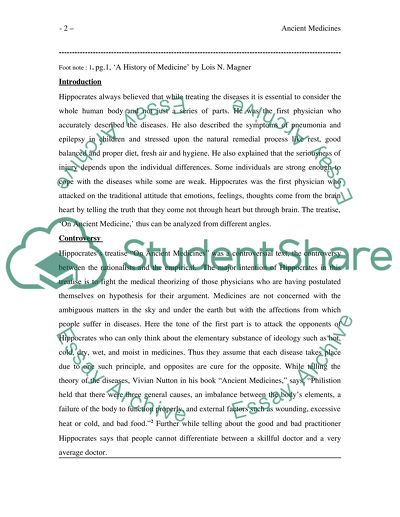Cite this document
(From Hippocrates to Nowadays Medicine Essay Example | Topics and Well Written Essays - 2250 words, n.d.)
From Hippocrates to Nowadays Medicine Essay Example | Topics and Well Written Essays - 2250 words. https://studentshare.org/health-sciences-medicine/1543198-ancient-science-and-medicine
From Hippocrates to Nowadays Medicine Essay Example | Topics and Well Written Essays - 2250 words. https://studentshare.org/health-sciences-medicine/1543198-ancient-science-and-medicine
(From Hippocrates to Nowadays Medicine Essay Example | Topics and Well Written Essays - 2250 Words)
From Hippocrates to Nowadays Medicine Essay Example | Topics and Well Written Essays - 2250 Words. https://studentshare.org/health-sciences-medicine/1543198-ancient-science-and-medicine.
From Hippocrates to Nowadays Medicine Essay Example | Topics and Well Written Essays - 2250 Words. https://studentshare.org/health-sciences-medicine/1543198-ancient-science-and-medicine.
“From Hippocrates to Nowadays Medicine Essay Example | Topics and Well Written Essays - 2250 Words”. https://studentshare.org/health-sciences-medicine/1543198-ancient-science-and-medicine.


